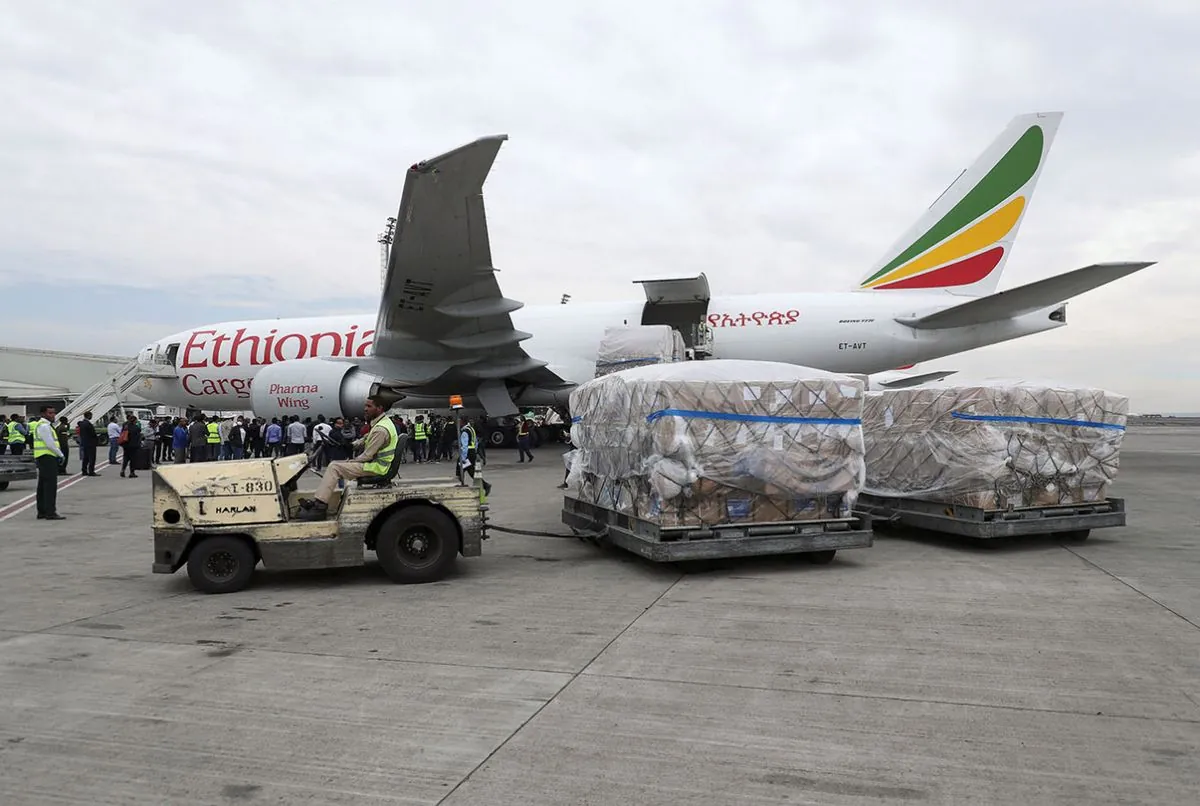Middle Eastern Airlines Battle for Dominance in Africa's Skies
Qatar Airways, Emirates, and Turkish Airlines are expanding their presence in Africa's untapped aviation market. The move promises increased connectivity but raises concerns about foreign control of African airlines.

The African aviation market is experiencing a significant transformation as Middle Eastern airlines vie for dominance in what is considered the world's last major untapped air travel market. This development comes as Africa's aviation sector, despite representing 1.5 billion people, accounted for a mere 2.1% of global airline traffic in 2023.
Three major players - Qatar Airways, Emirates, and Turkish Airlines - are at the forefront of this expansion. These carriers, having already reshaped global aviation, are now turning their attention to Africa, recognizing its potential for growth and strategic importance.
Qatar Airways has made a bold move by acquiring a 25% stake in South African carrier Airlink in August 2024. This acquisition, the maximum legal limit for foreign ownership, includes two board seats and is viewed as a springboard for Qatar's ambitions in southern Africa. Badr Mohammed Al-Meer, Qatar Airways' chief executive, expressed the airline's desire to become "embedded in Africa's growth story."

The expansion strategies of these Middle Eastern carriers are impressive:
- Qatar Airways serves 31 African cities, representing about 20% of its global network
- Emirates operates approximately 20 African routes
- Turkish Airlines boasts three times the number of African routes as Emirates
In contrast, British Airways serves only 10 African cities, highlighting the aggressive expansion of Middle Eastern carriers in the region.
This push into Africa is not without controversy. Some analysts express concern over the increasing reach of Middle Eastern carriers in Africa, drawing parallels to earlier Chinese investments in African infrastructure. Desmond Latham, an aviation analyst in South Africa, cautioned against handing over full control of carriers to outside interests, emphasizing the importance of African countries maintaining control over their airlines.
However, the expansion also brings benefits. Increased connectivity and potentially lower fares could result from this competition. For many African travelers, the current situation often requires lengthy detours through European hubs for intra-African travel, a problem these new routes could alleviate.
African carriers face significant challenges in this new landscape. Ethiopian Airlines, one of Africa's "big three" carriers, has been working to establish Addis Ababa as a global hub, similar to those in the Gulf. However, progress has been slow due to restrictions on traffic rights between African countries. The Single African Air Transport Market initiative aims to address these barriers, but implementation has been limited.
"There's a lot of upside in terms of the middle class that will emerge one day. And it's a continent that is geographically very well placed for operating a hub in the Middle East."
As Middle Eastern carriers continue their expansion, a new competitor looms on the horizon. Saudi Arabia is preparing to launch Riyadh Air, a high-end carrier that will directly compete with Emirates and Qatar Airways. This development suggests that the battle for Africa's skies is far from over and may become even more intense in the coming years.
The future of African aviation hangs in the balance as these global players reshape the continent's air travel landscape. The outcome of this competition will likely have far-reaching implications for African connectivity, economic development, and the global aviation industry as a whole.


































